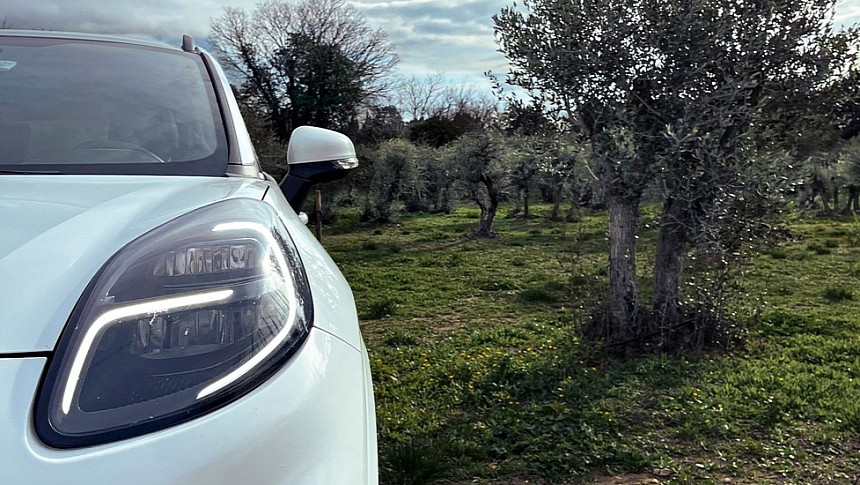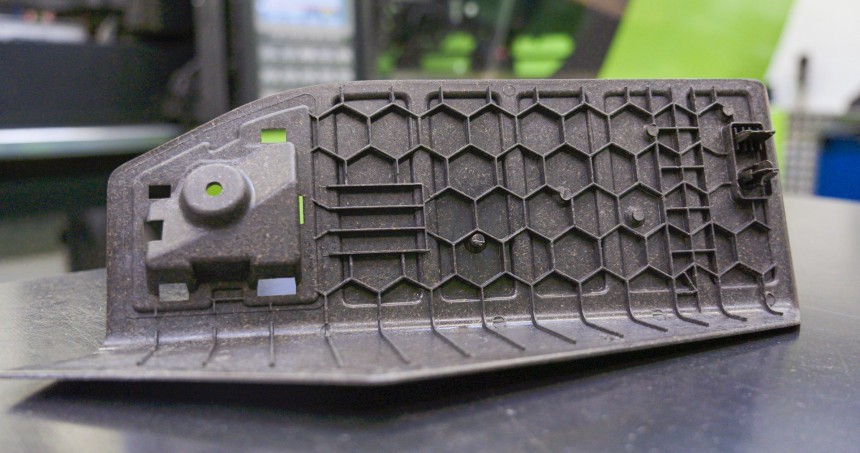Who would’ve thought, 30 years ago, that we would be ditching V12s and V8 in the name of electrification? And here we are, doing it at the speed of light, in a desperate attempt to save what is left of the planet. Who would think right now that, a few years from now, parts of our cars would be made from olives?
All fingers are pointed at Ford, the carmaker that already uses recycled plastic in models such as the Bronco Sport and the electric Mustang Mach-E.
Having started on a mission to offer a more sustainable lineup, the Blue Oval is expanding development in areas that nobody has ever thought of integrating into car development before. Ford's project sounds like a Mediterranean diet for cars. They are not going to replace fuel with olive oil. That stays an option only for salads and cooking. But they are going to do the next best thing.
Every year, pruning olive trees creates 7 million tons of waste consisting of branches and twigs. Therefore, the Ford engineers in Cologne, Germany, are not going to let that waste anymore. They launched a research project to explore how all that food waste could be re-purposed to create car part prototypes.
Parts developed from the waste turned out to be durable and lightweight. By turning the waste into strong and and sustainable biocomposite material, the engineers manage to reduce the amount of plastic they use in vehicle parts, but also the carbon footprint of auto parts. Ford thus takes one more step toward using more recycled and renewable content in manufacturing its vehicles.
Ford conducted this trial as part of the COMPOlive project. It is a project specifically designed to demonstrate the impact of using materials made from recycled and renewable content in auto parts. The waste materials were brought in from Andalusia, Spain, to Cologne, Germany. Andalusia is the world's highest production area of olive oil, covering 10 percent of the total.
The parts used by Ford in the project consisted of 40 percent tree fibers and 60 percent recycled polypropylene plastic. The substance was heated and subsequently folded into the shape of the necessary component.
It is far from the first time Ford has tried various approaches to sustainability. Some of them are already series production solutions in the company’s lineup. For instance, the soybean-based foam seats and headrests are an industry-first, and so are the post-consumer recycled materials.
Yogurt cups were used for the frunk insert of the Ford Mustang Mach-E, while recycled ocean plastic can be found in wiring harness clips in the Ford Bronco Sport.
Such projects are part of Ford's Road to Better commitment, which targets a more sustainable future of transportation.
Having started on a mission to offer a more sustainable lineup, the Blue Oval is expanding development in areas that nobody has ever thought of integrating into car development before. Ford's project sounds like a Mediterranean diet for cars. They are not going to replace fuel with olive oil. That stays an option only for salads and cooking. But they are going to do the next best thing.
Every year, pruning olive trees creates 7 million tons of waste consisting of branches and twigs. Therefore, the Ford engineers in Cologne, Germany, are not going to let that waste anymore. They launched a research project to explore how all that food waste could be re-purposed to create car part prototypes.
Parts developed from the waste turned out to be durable and lightweight. By turning the waste into strong and and sustainable biocomposite material, the engineers manage to reduce the amount of plastic they use in vehicle parts, but also the carbon footprint of auto parts. Ford thus takes one more step toward using more recycled and renewable content in manufacturing its vehicles.
The parts used by Ford in the project consisted of 40 percent tree fibers and 60 percent recycled polypropylene plastic. The substance was heated and subsequently folded into the shape of the necessary component.
It is far from the first time Ford has tried various approaches to sustainability. Some of them are already series production solutions in the company’s lineup. For instance, the soybean-based foam seats and headrests are an industry-first, and so are the post-consumer recycled materials.
Yogurt cups were used for the frunk insert of the Ford Mustang Mach-E, while recycled ocean plastic can be found in wiring harness clips in the Ford Bronco Sport.
Such projects are part of Ford's Road to Better commitment, which targets a more sustainable future of transportation.












